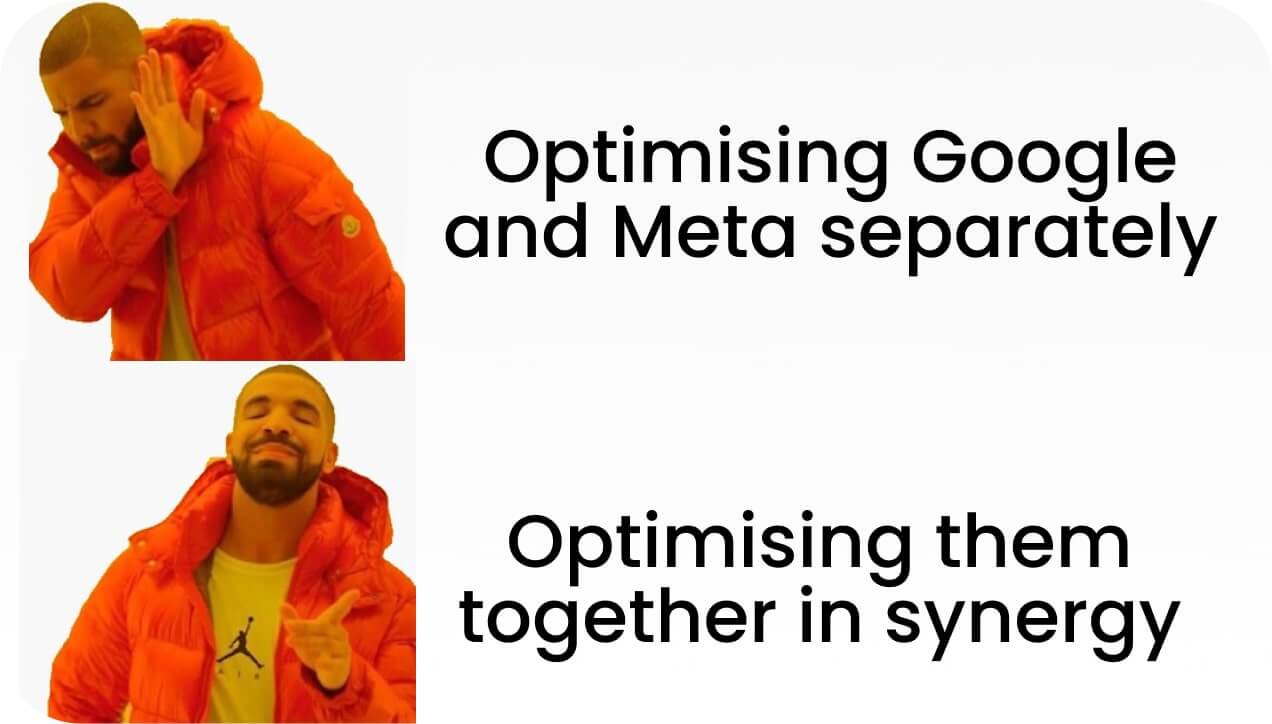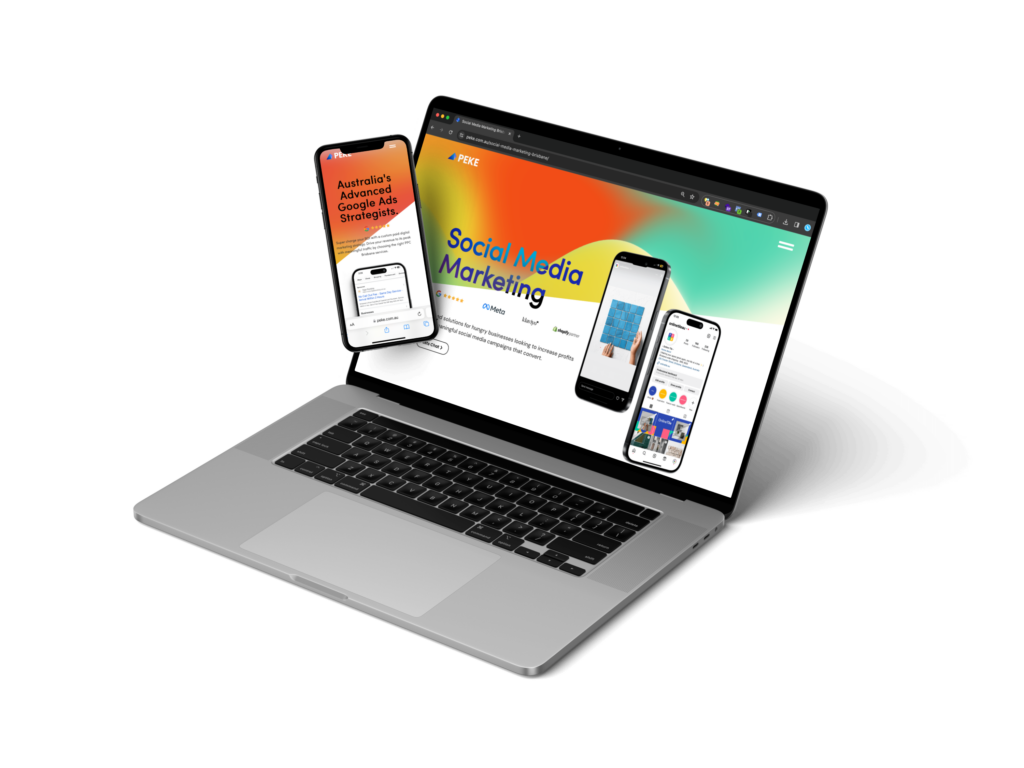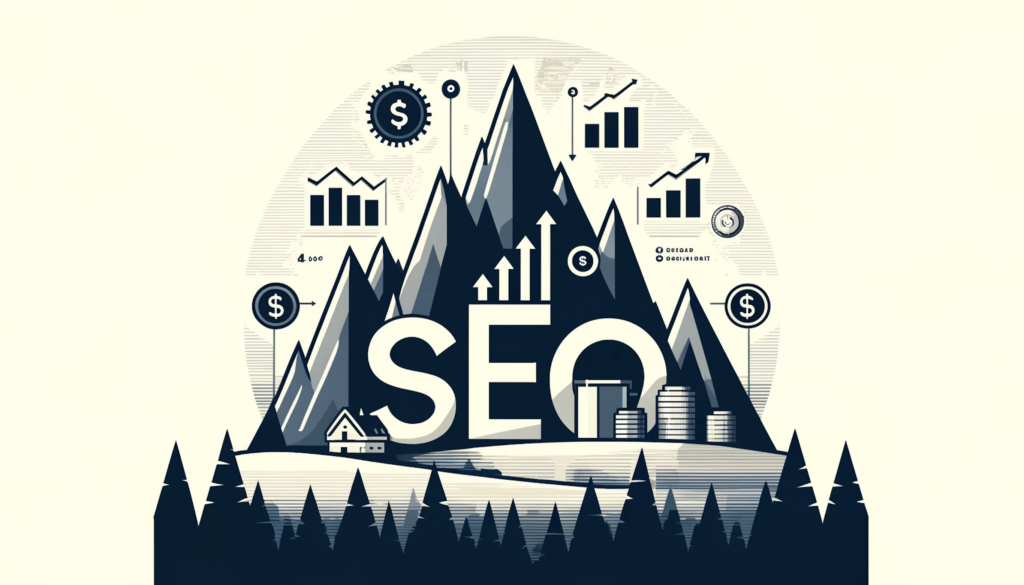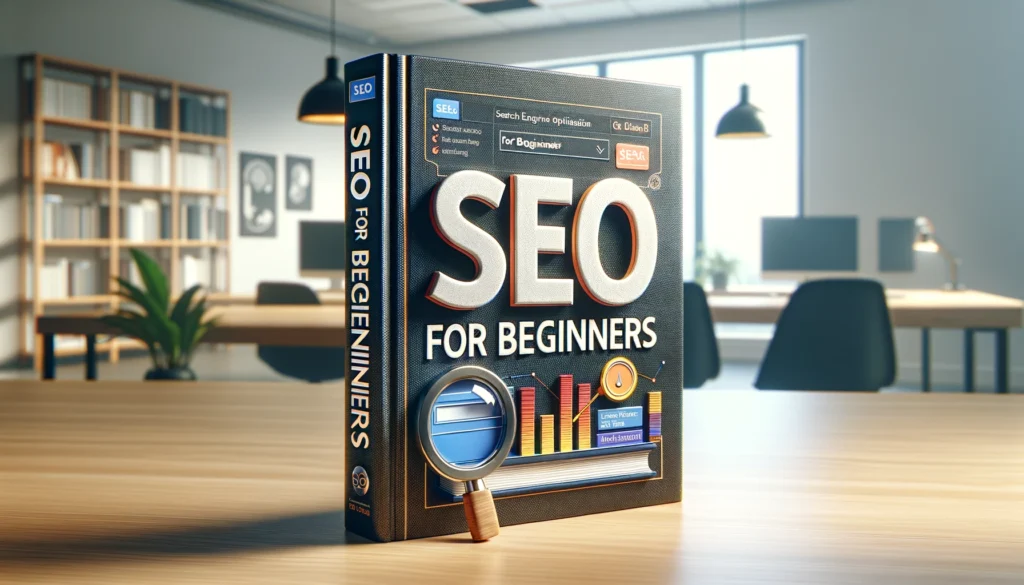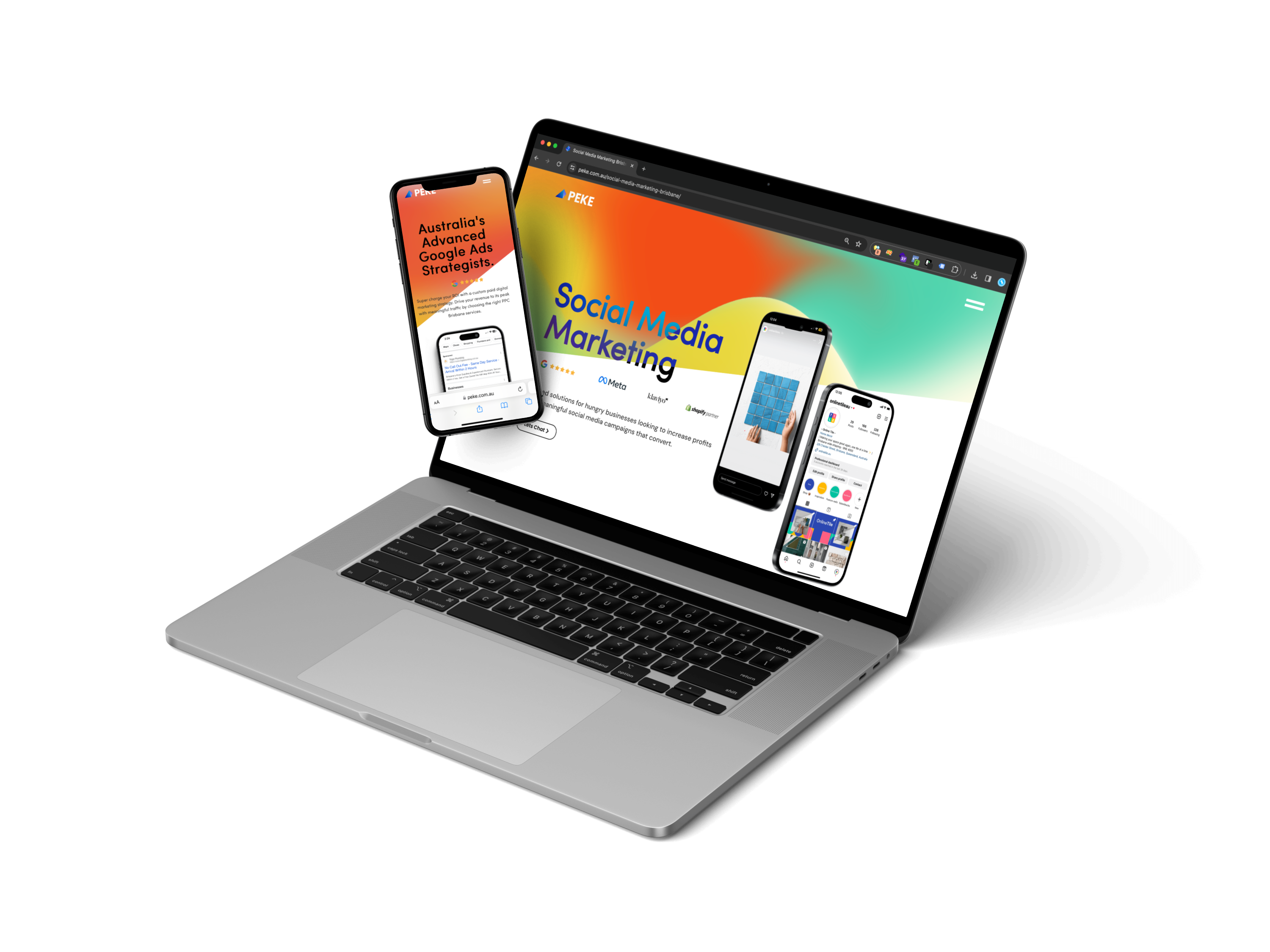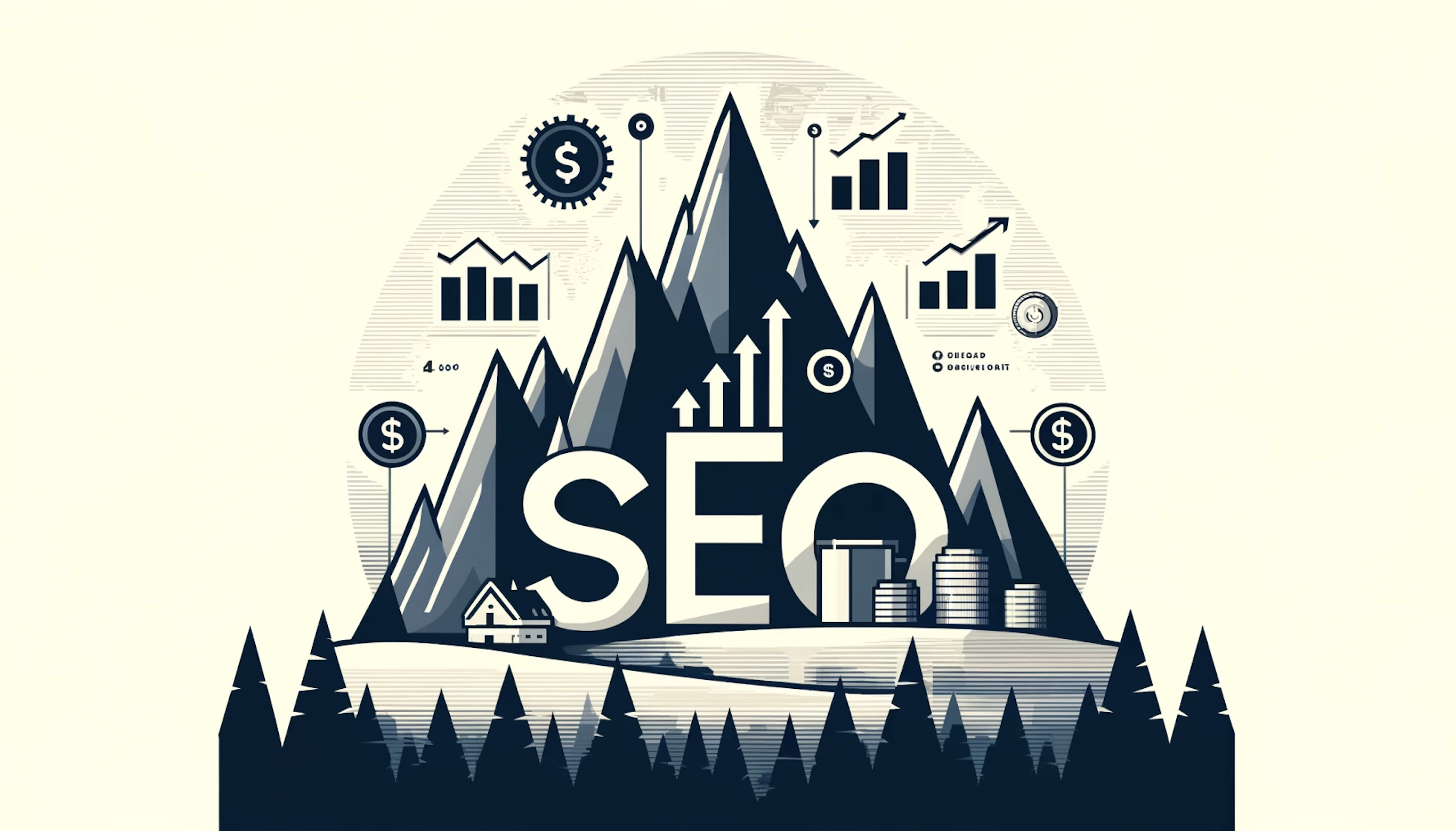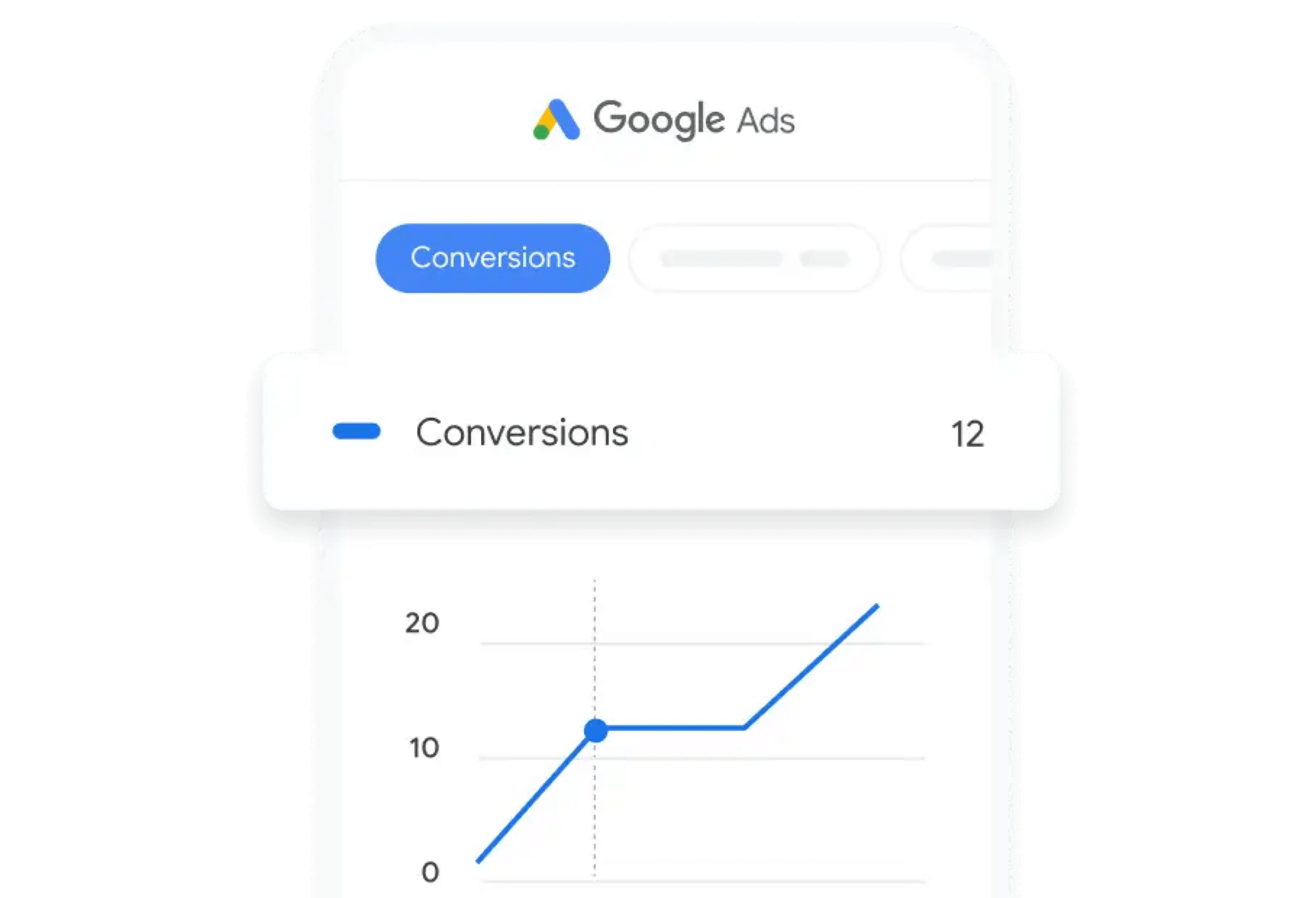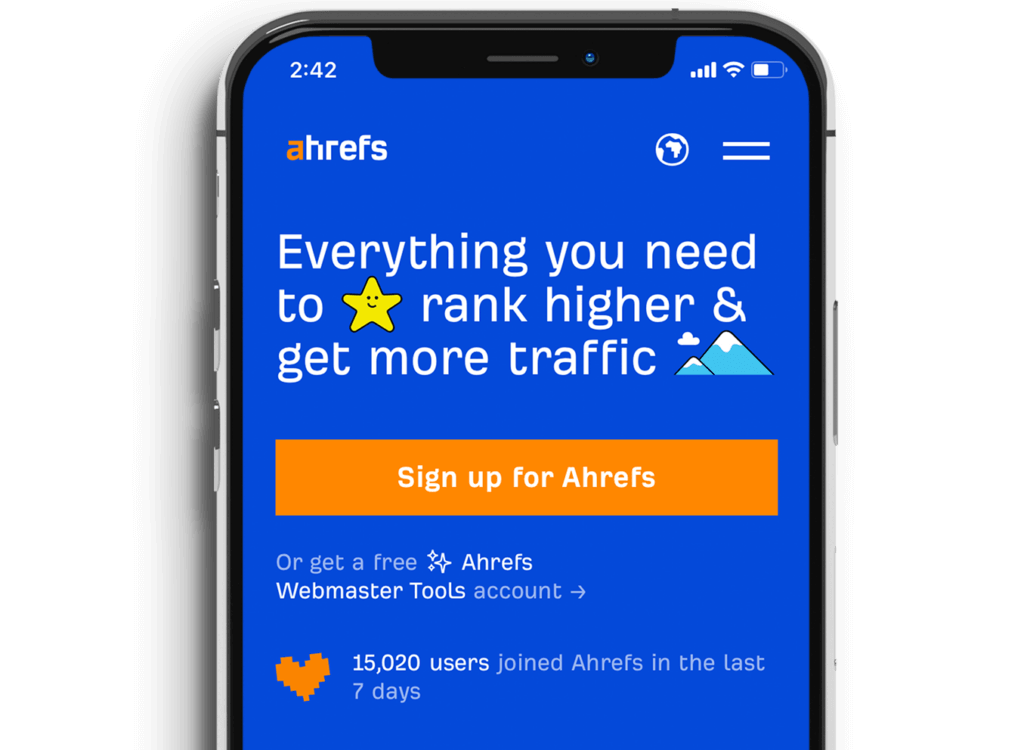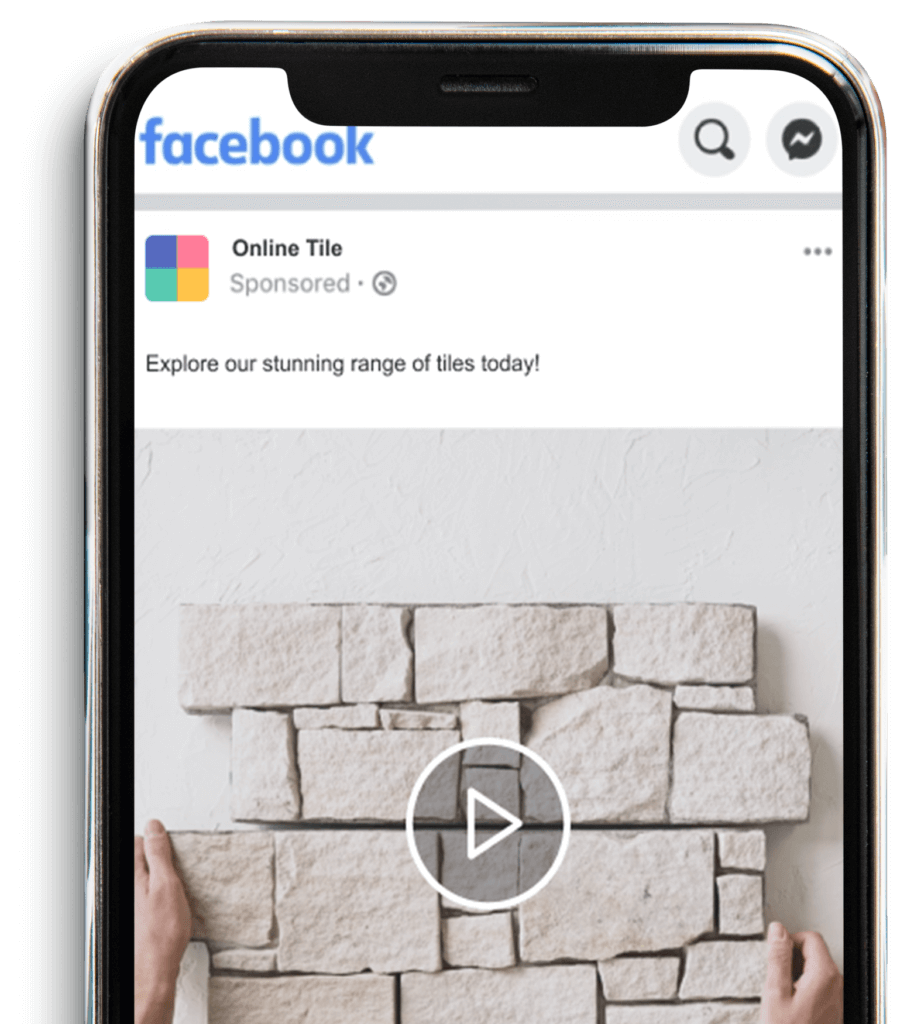The Power of Dual Optimisation: Why Google & Meta Shouldn’t be Handled in Silos
Many of us strive for mastery in our specific Digital Marketing channels. As specialists, or even as enthusiasts or maybe you’re just trying to run your small business, it’s easy to get absorbed into one platform, neglecting the immense potential that arises when you interconnect your strategies. When we discuss giants like Google and Meta (formerly known as Facebook), the integration is not just beneficial—it’s transformative.
Here’s why you shouldn’t treat Google and Meta as separate entities, but rather as interwoven strands of your holistic digital marketing strategy:
1. Meta’s Brand Search Impact
An intriguing phenomenon I’ve observed over time is the influence of Meta on brand search volume. When a brand’s Meta activity spikes, or there’s a substantial ad spend on the platform, it frequently translates to an increased number of brand-specific searches on Google.
- 10% increase in social media ad spend leads to a ~7% increase in brand search traffic.
- Promotional campaigns on Meta result in a ~25% increase in brand search traffic.
- 1,000 engagements on social media correlate with a ~3.5% increase in brand search.
- Video content with 1M views on Meta platforms can boost brand search by ~15%.
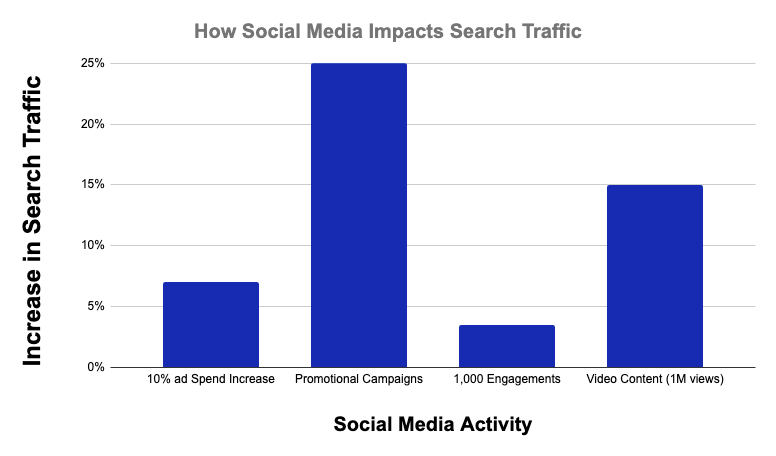
2. Google’s Remarketing Brilliance
Ask yourself: what’s a more targeted audience for remarketing than users who’ve used high-intent keywords relevant to your product or service? Google feeds Meta with such high-value audiences, making your remarketing efforts on Meta incredibly precise.
3. Enhancing Touch points Throughout the Buying Journey
The modern consumer’s journey is rarely linear. A mere Google search might start their quest, but numerous touch points influence their final decision. By being present at various stages of their buying journey, through customised ads and copy on platforms they frequent (like Meta), you’re more likely to guide them to conversion.
Pro Tip: It’s imperative to customise your messaging and creatives based on where these potential customers are in the funnel. Recognise their familiarity with your brand and provide the right nudge they need.
4. Shared Insights: The Catalyst for Continuous Improvement
Collaboration breeds success. By sharing insights about which strategies are resonating (and which aren’t) between Google and Meta, you can refine your approach. For instance, if an A/B tested ad copy works wonders on Meta, why not try a similar approach on Google?
5. Leveraging Google Search Trends on Meta
Utilising Google’s search term trends provides invaluable insights into what your target audience is currently interested in. Translating these insights into your Meta ad creatives can lead to more engaging and relevant campaigns.
Lastly, while this post focuses on the synergy between Google and Meta, remember that these principles can be extended to other platform pairs too, such as Google & LinkedIn or Google & TikTok.

